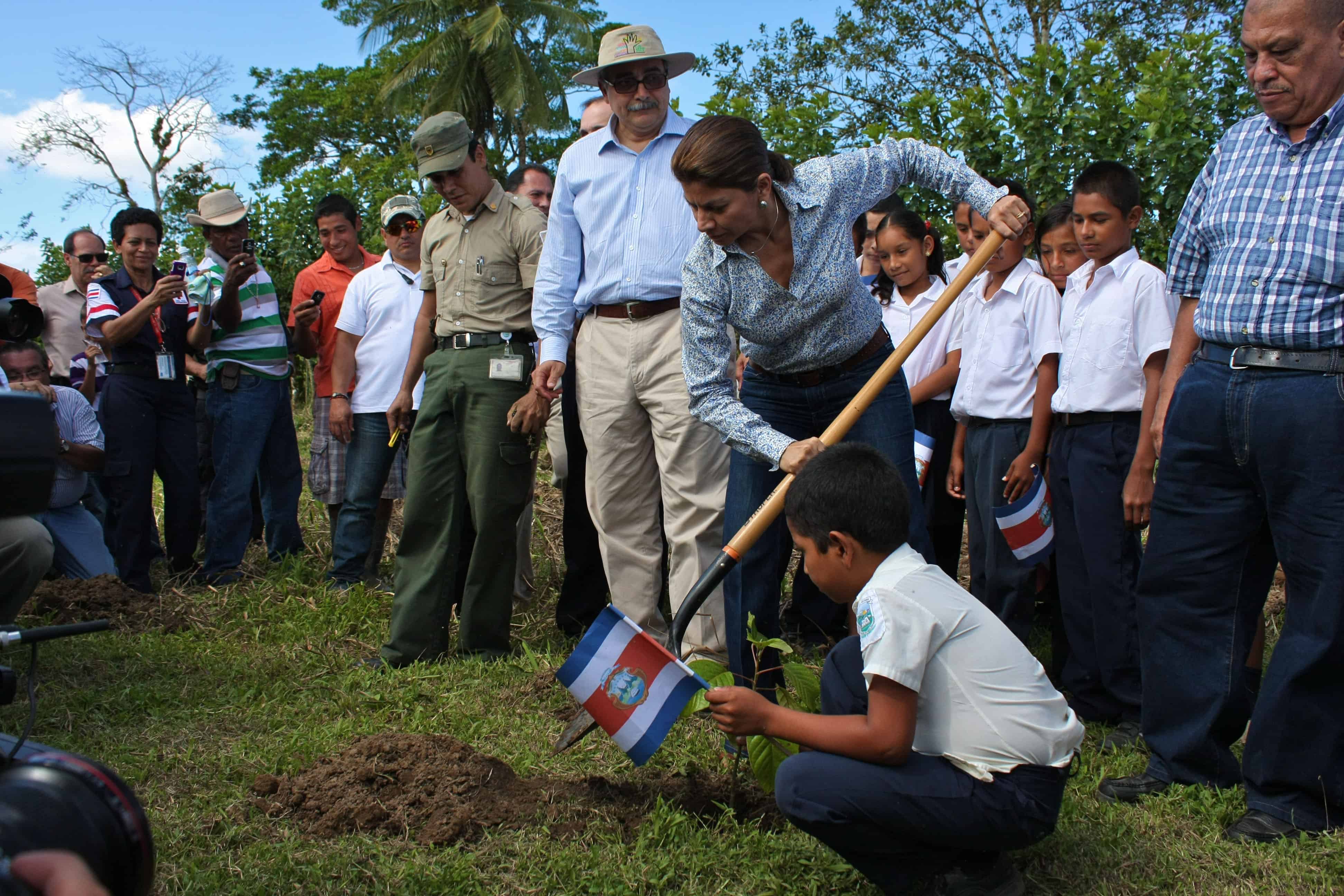Laura Chinchilla, the first woman to be elected president in Costa Rica, and who four years ago was at the peak of her popularity, will deliver her final State of the Nation speech with the lowest approval ratings of any leader in the Americas.
Chinchilla will speak to Costa Rica’s 57 new lawmakers, who take office today in a civic celebration that coincides with international Labor Day celebrations and protests.
On May 8, Chinchilla will turn over the presidency to historian and former university professor Luis Guillermo Solís without having successfully convinced Costa Ricans of her administration’s accomplishments, as her term was marked by four years of persistent fiscal woes and numerous corruption scandals.
One public opinion poll, conducted last December by polling firm Unimer for the daily La Nación, gave Chinchilla a positive rating of only 11 percent. And 61 percent of respondents said they considered her administration “bad” or “very bad.”
She garnered only a 16 percent approval rating as of January, according to Consulta Mitofsky, a Mexican consulting firm. Chinchilla’s rating is the lowest of all 30 leaders from the Americas, Europe and Asia. The poll took place between January and March.
“Chinchilla leaves behind a fiscal deficit of 6 percent of gross domestic product, which is much worse than what the previous administration left [in 2010],” University of Costa Rica political analyst Víctor Ramírez told AFP.
But Ramírez noted that under the Chinchilla administration, violent crime has decreased, with homicides dropping from 11.6 per 100,000 citizens in 2010 to 8.5 in 2013, according to the United Nations. Chinchilla also made gains with programs for children and seniors, but according to Ramírez, “that is not enough to be remembered in history.”
Recommended: Honduras, Central America still lead the world in murder rates
Political analyst Alberto Salom, a Solís ally, characterized Chinchilla’s administration as “contradictory, lacking ambitious goals, and incapable of confronting and punishing corruption.”
“[Chinchilla] started by declaring fiscal reform unnecessary. Halfway through she changed her mind and promoted a bill, but it failed,” Salom said. He added that the outgoing president was incapable of reaching consensus even in her own party, the ruling National Liberation Party.
Blame the media
Chinchilla’s communications minister, former journalist Carlos Roverssi, acknowledged the deep discontent among Costa Rican voters with the current administration, but he attributed it to unfair publicity from the media and cultural machismo, the Spanish word for sexism.
“Faced with constant media attacks, the only way [to counter] would have been to run our own publicity campaign, but the administration … thought it wasn’t important,” Roverssi told local press.
Ramírez countered that Chinchilla’s government “refused to accept responsibility, so they looked for a scapegoat in the press.”
One of the biggest scandals was the theft of $40 million in emergency public funds earmarked for a border road project in the north of Costa Rica. The road was built – unsupervised – in haste to respond to incursions by Nicaraguan soldiers and workers in a wetlands area near the two countries’ border.
The project was halted in March 2012 and led to the resignation of Chinchilla’s former public works and transport minister.
A month later, the president publicly defended her finance minister, Fernando Herrero, after the media revealed he and his wife allegedly committed tax evasion at the same time the administration was pushing through fiscal reform that included tax raises. Herrero also resigned.
In March 2013, Chinchilla entered one of the darkest chapters of her administration when it became public that she had used a private jet linked to drug traffickers to travel to Venezuela and Peru.
However, one of Chinchilla’s biggest legacies, Salom said, was her inability to “resolve fundamental problems of a social nature. … She was unable to reduce poverty and social inequality.”
Chinchilla’s deteriorating public image was one of the factors that led to the National Liberation Party’s historic defeat at the polls on April 6. It was the worst electoral pounding in the party’s 65-year history. Candidate Johnny Araya, who served as the mayor of Costa Rica’s capital for two decades, was walloped in a second-round vote by opposition party candidate Solís, who captured an unprecedented 78 percent of the vote.






